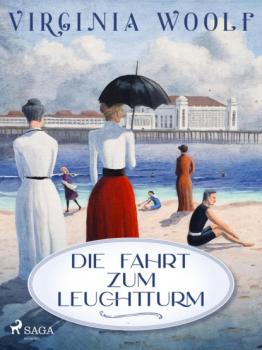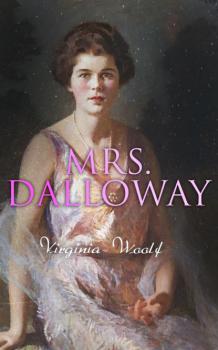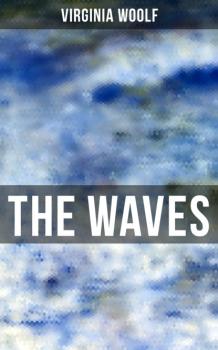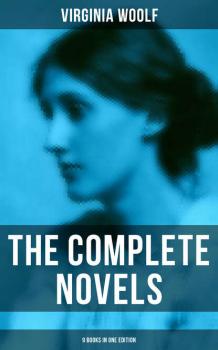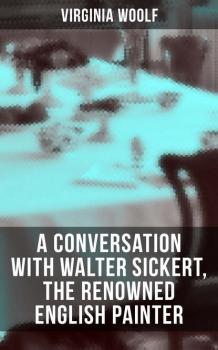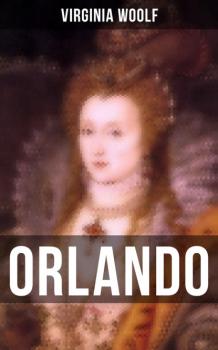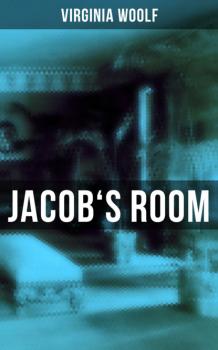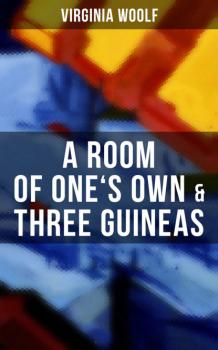Virginia Woolf
Список книг автора Virginia WoolfMrs Dalloway
Virginia Woolfs weltberühmter Roman über einen Mittwoch in London im Juni 1923: Die äußeren Ereignisse – Clarissa Dalloways Vorbereitung ihrer Abendgesellschaft sowie Besuche und Streifzüge durch Westminster – stecken in dieser Geschichte vor dem Innenleben der Protagonisten zurück. Im Zentrum stehen die psychischen Prozesse, Assoziationen und Wahrnehmungen der Beteiligten. -
A Room of One's Own
Discover Virginia Woolf's landmark essay on women’s struggle for independence and creative opportunity A Room of One's Own is one of Virginia Woolf's most influential works and widely recognized for its extraordinary contribution to the women's movement. Based on a lecture given at Girton College, Cambridge, it is one of the great feminist polemics, ranging in its themes from Jane Austen and Charlotte Brontë to the silent fate of Shakespeare's gifted (imaginary) sister, and the effects of poverty and sexual constraint on female creativity. The work was ranked by The Guardian newspaper as number 45 in the 100 World's Best Non-fiction Books. Part of the bestselling Capstone series, this collectible, hard-back edition of A Room of One’s Own includes an insightful introduction by Jessica Gildersleeve that explains the book's place in modernist literature and why it still resonates with contemporary readers. Born in 1882, Virginia Woolf was one of the most forward-thinking English writers of her time. Author of the classic novels Mrs Dalloway (1925) and To the Lighthouse (1927), she was also a prolific writer of essays, diaries, letters and biographies, and a member of the celebrated Bloomsbury Set of intellectuals and artists. Discover why A Room of One's Own is considered among the greatest and most influential works of female empowerment and creativity Learn why Woolf's classic has stood the test of time. Make this attractive, high-quality hardcover edition a permanent addition to your library Enjoy an insightful introduction by Jessica Gildersleeve, who connects the themes of the text to the concerns of today's audience Capstone Classics brings A Room of One's Own to a new generation of readers who can discover how Woolf's book broke new artistic ground and advanced the position of women writers and creatives around the world.
Die Fahrt zum Leuchtturm
Einer der großen Romane Virginia Woolfs, den ihr Mann Leonard als «philosophisches Gedicht» bezeichnete: Im Zentrum der Geschichte, die sich über ungefähr 10 Jahre erstreckt, stehen die einfühlsame Mrs Ramsay und ihre Großfamilie. Auf ihrem Landhaus auf der schottischen Insel Skye beherbergt sie viele Gäste, wobei es weniger um die Aktivitäten als solche geht, sondern um das Interagieren der unterschiedlichen Familienmitglieder und Sommergäste untereinander.-
Mrs. Dalloway
Mrs Dalloway, Virginia Woolf's fourth novel, offers the reader an impression of a single June day in London in 1923. Clarissa Dalloway, the wife of a Conservative member of parliament, is preparing to give an evening party, while the shell-shocked Septimus Warren Smith hears the birds in Regent's Park chattering in Greek. There seems to be nothing, except perhaps London, to link Clarissa and Septimus. She is middle-aged and prosperous, with a sheltered happy life behind her; Smith is young, poor, and driven to hatred of himself and the whole human race. Yet both share a terror of existence, and sense the pull of death. The world of Mrs Dalloway is evoked in Woolf's famous stream of consciousness style, in a lyrical and haunting language which has made this, from its publication in 1925, one of her most popular novels.
THE WAVES
The book is Virginia Woolf's most experimental novel, first published in 1931. It consists of soliloquies spoken by the book's six characters: Bernard, Susan, Rhoda, Neville, Jinny, and Louis. Also important is Percival, the seventh character, though readers never hear him speak through his own voice. The monologues that span the characters' lives are broken up by nine brief third-person interludes detailing a coastal scene at varying stages in a day from sunrise to sunset. As the six characters or «voices» alternately speak, Woolf explores concepts of individuality, self, and community. Each character is distinct, yet together they compose a gestalt about a silent central consciousness. Bernard is a story-teller, always seeking some elusive and apt phrase Louis is an outsider, who seeks acceptance and success; Neville desires love, seeking out a series of men, each of whom become the present object of his transcendent love; Jinny is a socialite, whose Weltanschauung corresponds to her physical, corporeal beauty; Susan flees the city, in preference for the countryside, where she grapples with the thrills and doubts of motherhood; and Rhoda is riddled with self-doubt and anxiety, always rejecting and indicting human compromise, always seeking out solitude. Percival is the god-like but morally flawed hero of the other six, who dies midway through the novel on an imperialist quest in British-dominated colonial India. Although Percival never speaks through a monologue of his own in The Waves, readers learn about him in detail as the other six characters repeatedly describe and reflect on him throughout the book. The novel follows its six narrators from childhood through adulthood. Adeline Virginia Woolf (25 January 1882 – 28 March 1941) was an English writer who is considered one of the foremost modernists of the twentieth century and a pioneer in the use of stream of consciousness as a narrative device.
ORLANDO
Orlando: A Biography, is a fictional work published in 1928. Virginia Woolf was an English author, essayist, publisher, and writer of short stories, regarded as one of the foremost modernist literary figures of the twentieth century. During the interwar period. The novel is semi-biographical based and dedicated to Woolf's lover Vita Sackville-West. Well regarded for it's impact on gender studies and the stylized approach in which it portrays women. The novel was conceived as a «writer's holiday» from more structured and demanding novels. Woolf allowed neither time nor gender to constrain her writing. The protagonist, Orlando, ages only thirty-six years and changes gender from man to woman. This pseudo-biography satirizes more traditional Victorian biographies that emphasize facts and truth in their subjects' lives. Although Orlando may have been intended to be a satire or a holiday, it touches on important issues of gender, self-knowledge, and truth with Virginia Woolf's signature poetic style. Adeline Virginia Woolf (25 January 1882 – 28 March 1941) was an English writer, and one of the foremost modernists of the twentieth century. During the interwar period, Woolf was a significant figure in London literary society and a central figure in the influential Bloomsbury Group of intellectuals.
JACOB'S ROOM
The novel centres, in a very ambiguous way, around the life story of the protagonist Jacob Flanders, and is presented entirely by the impressions other characters have of Jacob (except for those times when we do indeed get Jacob's perspective). Thus, although it could be said that the book is primarily a character study and has little in the way of plot or background, the narrative is constructed as a void in place of the central character, if indeed the novel can be said to have a 'protagonist' in conventional terms. Adeline Virginia Woolf (25 January 1882 – 28 March 1941) was an English writer, and one of the foremost modernists of the twentieth century. During the interwar period, Woolf was a significant figure in London literary society and a central figure in the influential Bloomsbury Group of intellectuals. Her most famous works include the novels Mrs Dalloway (1925), To the Lighthouse (1927) and Orlando (1928), and the book-length essay A Room of One's Own (1929), with its famous dictum, «A woman must have money and a room of her own if she is to write fiction.»
A Room of One's Own & Three Guineas
A Room of One's Own, first published in 1929, is a witty, urbane and persuasive argument against the intellectual subjection of women, particularly women writers. The sequel, Three Guineas, is a passionate polemic which draws a startling comparison between the tyrannous hypocrisy of the Victorian patriarchal system and the evils of fascism. This volume combines two books which were among the greatest contributions to feminist literature this century. Together they form a brilliant attack on sexual inequality and a passionate polemic which draws a startling comparison between the tyrannous hypocrisy of the Victorian patriarchal system and the evils of fascism. Virginia Woolf makes the connection between war and the economy and a woman's role (or lack there of) in both. Adeline Virginia Woolf (25 January 1882 – 28 March 1941) was an English writer, and one of the foremost modernists of the twentieth century. During the interwar period, Woolf was a significant figure in London literary society and a central figure in the influential Bloomsbury Group of intellectuals.


